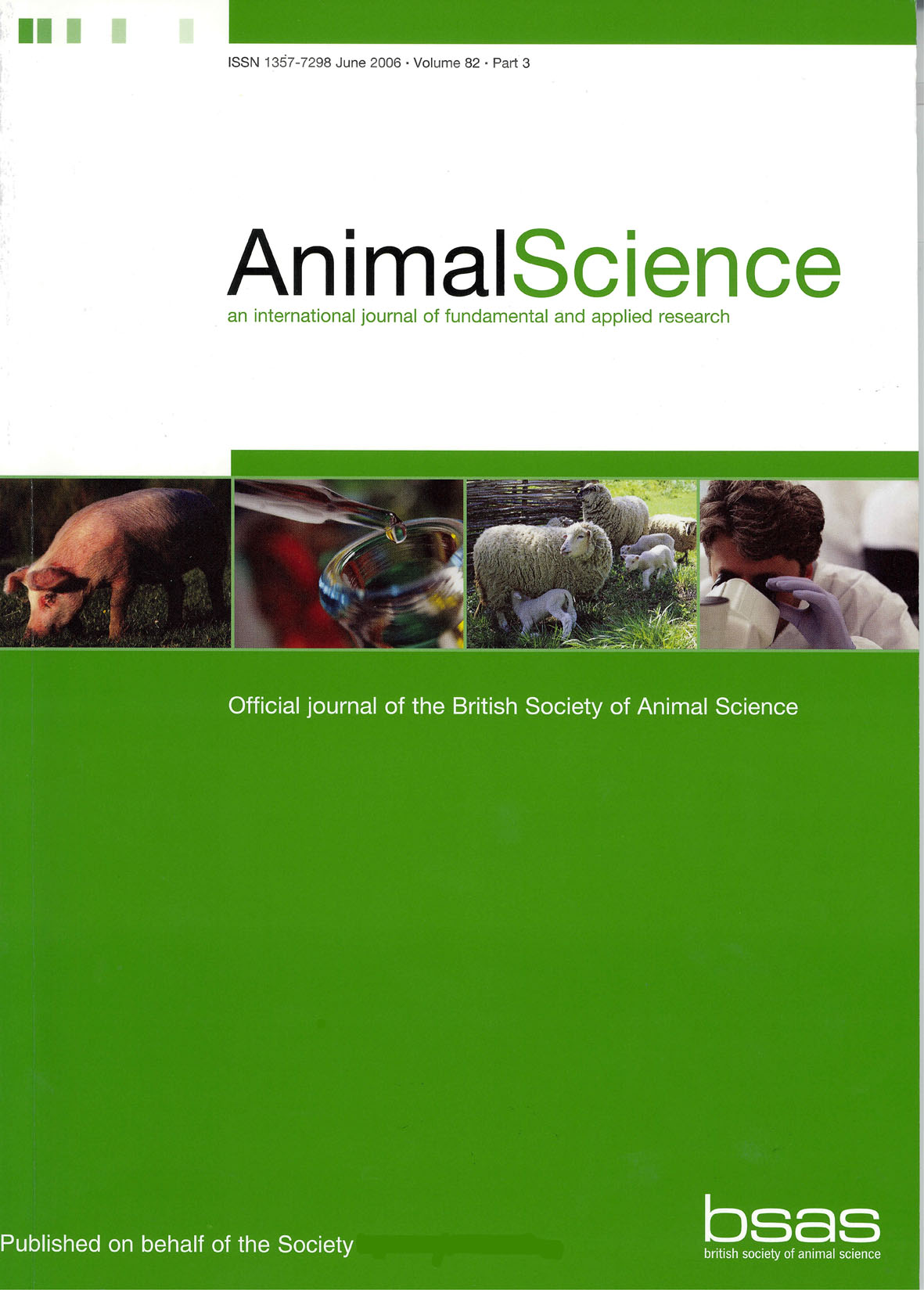Article contents
Digestion of unmolassed sugar-beet pulp in young growing pigs and implications for the growth-supporting values of fermented energy
Published online by Cambridge University Press: 02 September 2010
Abstract
Experiments involving both digestion and growth trials were undertaken to compare the responses of pigs to two increments of digested energy resulting either from gut fermentation or from digestion by endogenous enzymes in the small intestine. Unmolassed sugar-beet pulp (SBP) and maize starch (MS) were selected as model materials for these two systems. A control diet was formulated to fulfil the needs of pigs for all essential nutrients apart from energy. This diet was offered according to a scale set at about twice the maintenance energy requirement. The two SBP diets contained 150 and 300 g SBP per kg (SBP15 and SBP30) and the two MS diets 100 and 200 g MS per kg (MS10 and MS20). Sixty observations were made with 10 female and 20 male growing pigs to provide information on digestion. The results showed that the energy in SBP and MS had an apparent digestibility of 0·74 and 0·98 respectively (s.e.d. 0025). The neutral-detergent fibre fraction of SBP had a digestibility of 0·81 (s.e. 0·055). Forty pigs (20 male and 20 female) were involved in the growth trial. The responses of pigs to increments of different digestible energy (DE) were measured in terms of daily carcass-weight gain. The results gave values of 435, 478, 527, 511 and 567 (s.e.d. 17·3) g/day for the control, SBP15, SBP30, MS 10 and MS20 treatments respectively. These results suggest that the apparent DE of SBP is used for carcass growth with an efficiency of 0·57 (s.e. 0·012) relative to the DE from MS.
- Type
- Research Article
- Information
- Copyright
- Copyright © British Society of Animal Science 1990
References
REFERENCES
- 6
- Cited by


